Property Newsletter | August 2022
Women own or co-own more than half of SA’s homes
and are buying a third of the cars being sold
Women own, either on their own or in partnership with other men or women – more than half of the residential property stock registered in South Africa – and women have bought more than a third of all new and used motor vehicles sold this year.
These changing ownership patterns reflect the growing participation of women in the economy as South Africa celebrates Women’s Month in August, where the country honours the more than 20 000 women who marched to the Union Buildings on 9 August 1956 in protest against the extension of Pass Laws to women.
Interestingly, the data suggests that women-only buyers are edging towards buying more expensive properties, while women’s share of new vehicles is also growing.
Women, changing the property landscape
By end July 2022, women accounted for, individually or in partnership, 57% (3 896 595) of the total volume of properties in the market (6 868 778), while this accounted for 54% (R3 440b) of the total value (R6 414b) of residential properties registered at the Deeds Office.
Total property stock vs stock by or with women
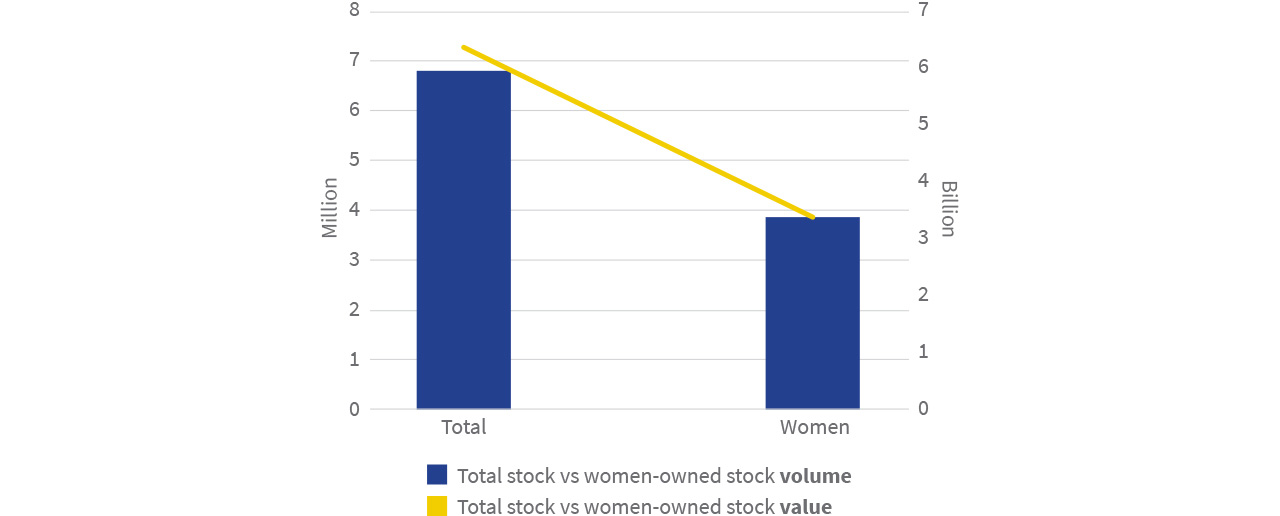
Value of property stock July 2022: women vs men
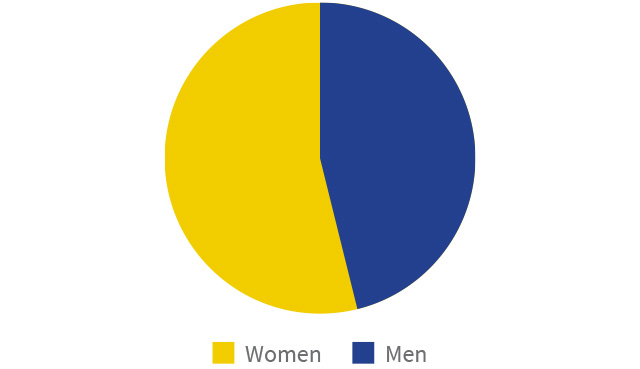
Volume of property stock July 2022: women vs men
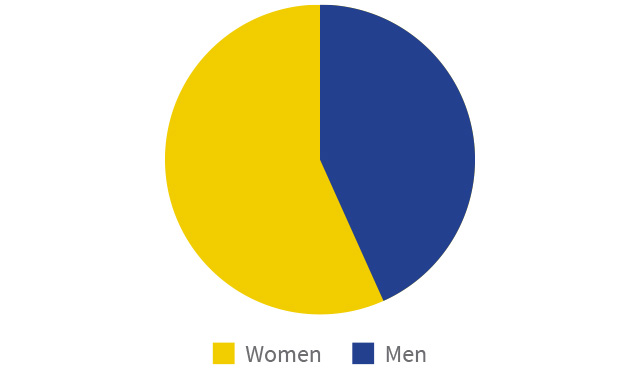
In the graph below we compare total residential property transfers with first-time buyers, women owners in partnership with other people, and then finally women-only owners. As expected, Covid-19 and its economic fallout caused a dip in 2020, but the market recovered strongly in 2022.
Residential transfers: 2018 - 2022
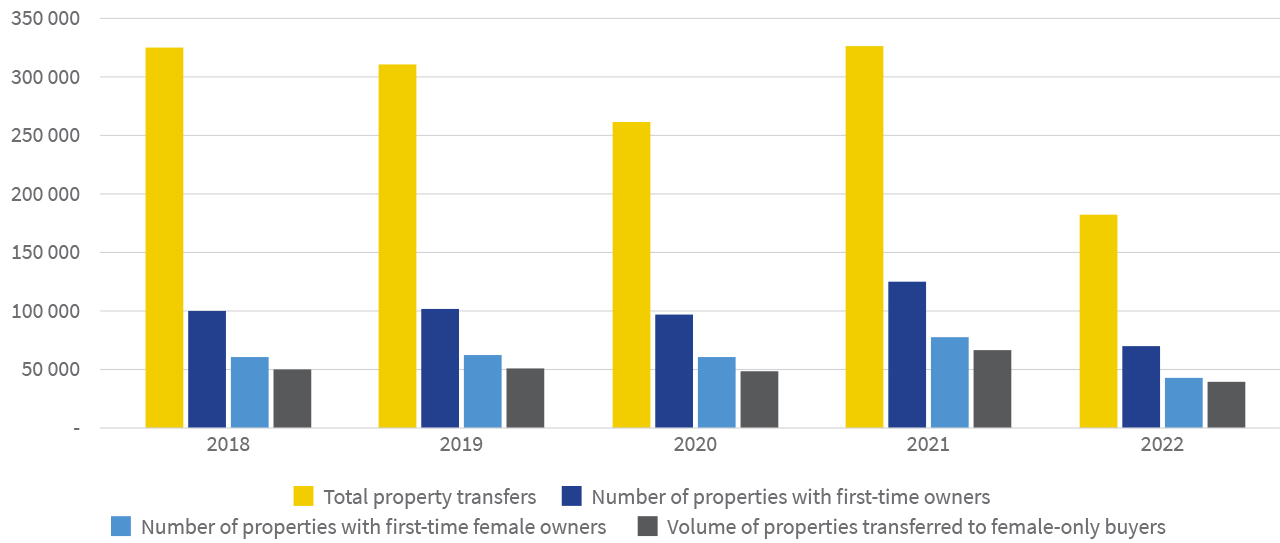
The percentage of properties purchased by women-only is steadily increasing, from 16% in 2018 to 21% in 2021 – and the number is up another percent for the seven months to end July 2022. But as the table below shows, the value of property purchases made by women only exceeds the volume of property purchased, and this is the inverse of purchases made by women with men or other women – suggesting women on their own are buying property that is slightly more expensive than the average.

When it comes to first-time buyers, transactions that include women have been consistently just above 60% for the last four years, although their portion of the total value of those transactions is in the mid-50% range.
% of property held by women first-time buyers: value and volume 2018 - 2022

While the age of women buyers has been reasonably consistent over the last four years, the age profile is trending towards the younger age bands – for example, the under 35-year old buyers have increased from 25% in 2018 to 34% in 2021.
Age of female buyers

Women buyers over 65 have fallen from 9% in 2018 to 6% in 2021, while buyers between 50-64 have dropped from 24% (2018) to 20% (2021).
Value band of female transfers
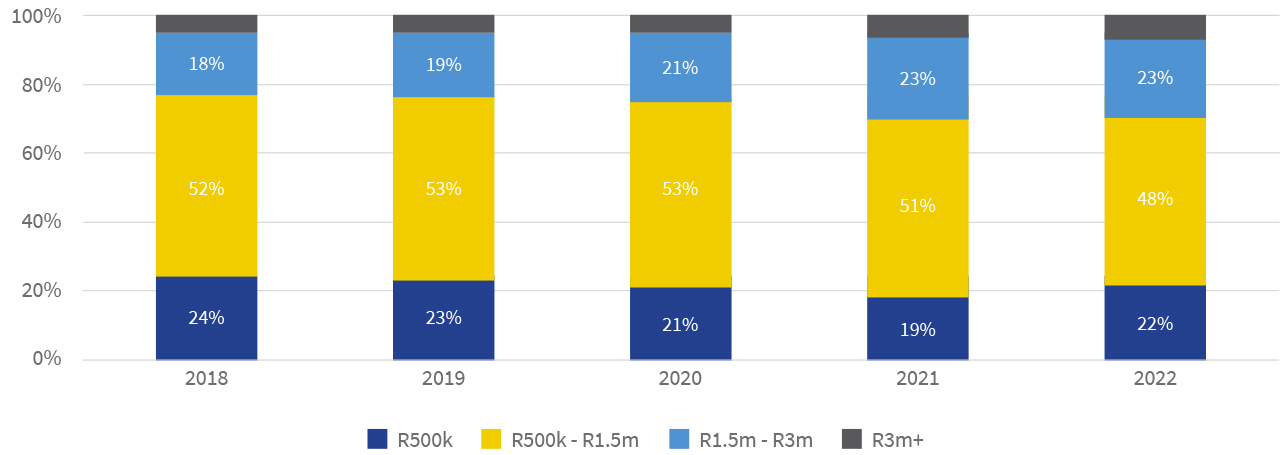
When it comes to value, the data suggests women are edging towards buying more expensive properties – in 2018, 18% of transfers relating to women buyers were in the R1.5m – R3m range, and this has increased to 23% in 2021. While this percentage is holding firm in 2022, there is a shift further down, with 2022 transfers in the R500k – R1.5m band dropping from 51% in 2021 to 48%, and transfers below R500k increasing from 19% in 2021 to 22% in 2022.
Women own more cars too...
Women ownership in the new and used vehicle market is accelerating as well and read together with the property data demonstrates a shifting dynamic in the economy that is continuing to play out.
Signio, Lightstone’s signature online platform for the motor industry that provides electronic workflow and signature solutions that securely automates the Vehicle and Asset Finance (VAF) and insurance process, shows that women accounted for 36.5% of new and used vehicle sales this year, up from just under 34% in 2017.
% Deals: female (New & Used)

Women are also buying more new vehicles – up to 46.1% in 2022 from just under 45% for the same period in 2020. Their share of the used vehicle market has also been steadily rising from 31% in 2017 to 33% in 2022.
% Deals: female (New)
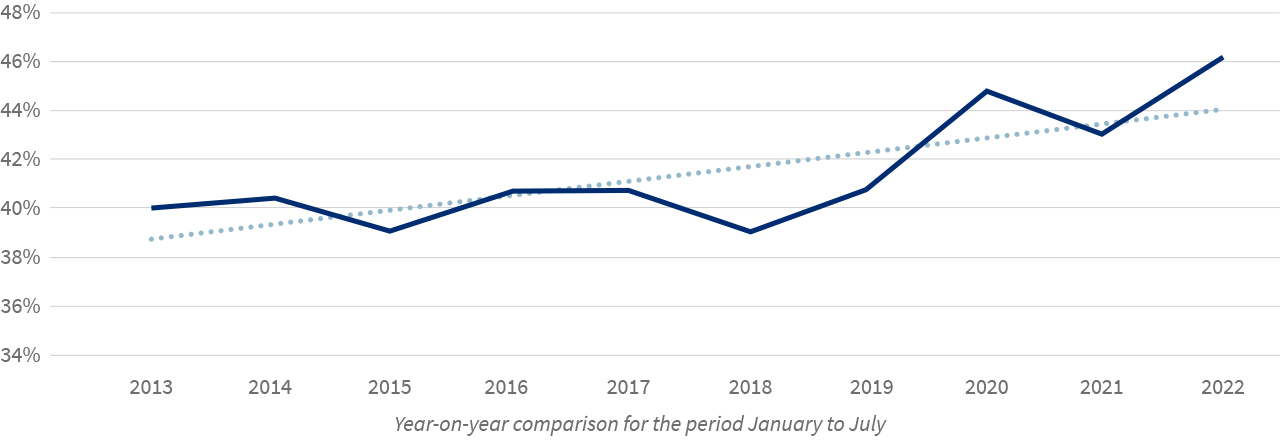
% Deals: female (Used)
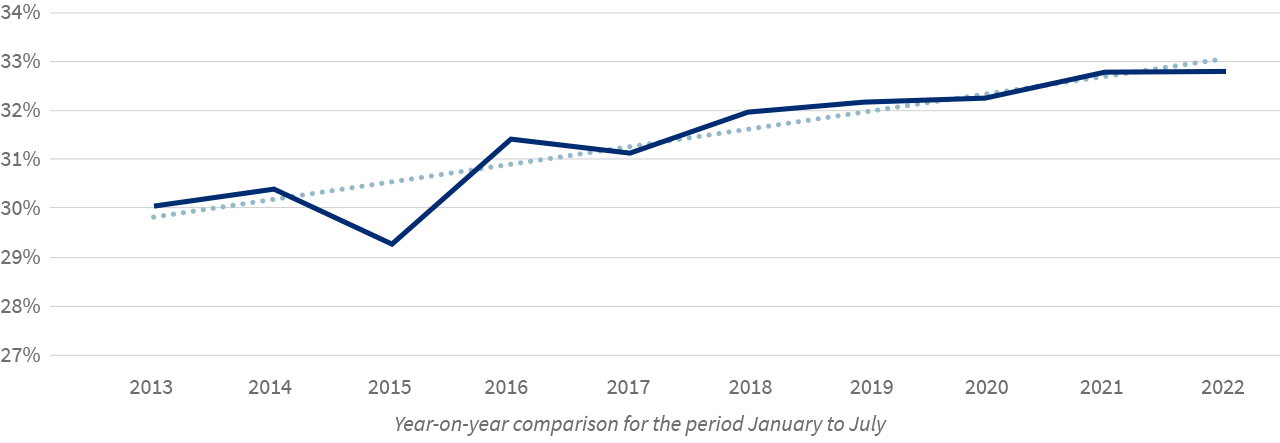
The purchasing gap is slowly narrowing between the sexes with women purchasing vehicles for an average cash price of R306 340 in 2022 versus men at R323 402.
Average cash purchase price: female vs male (New & Used combined)

Signio deals data for the last 36 month combined (August 2019 to July 2022) reveals that 69.4% of men are buying vehicles without choosing a balloon payment option (the residual lump sum remaining at the end of a vehicle finance period) – compared to women at just over 60%.
New & Used vehicle finance deals

The difference largely comes from new vehicles, where 40.7% of men buy without a balloon payment as opposed to 33.6% for women.
New vehicle finance deals
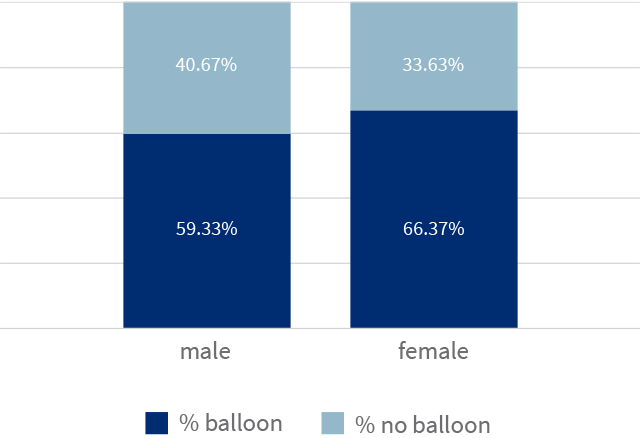
Used vehicle finance deals
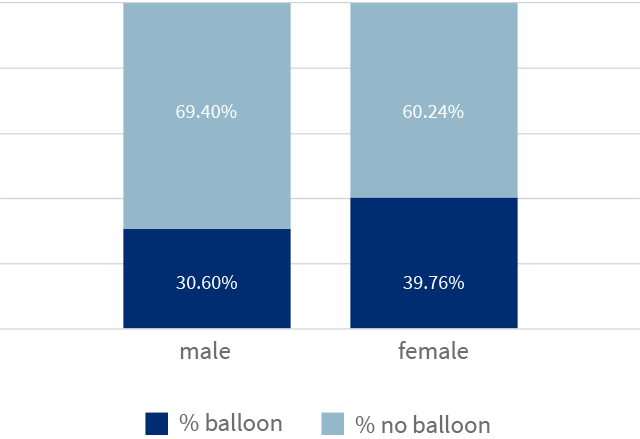

.png)
.png)
.png)
.png)